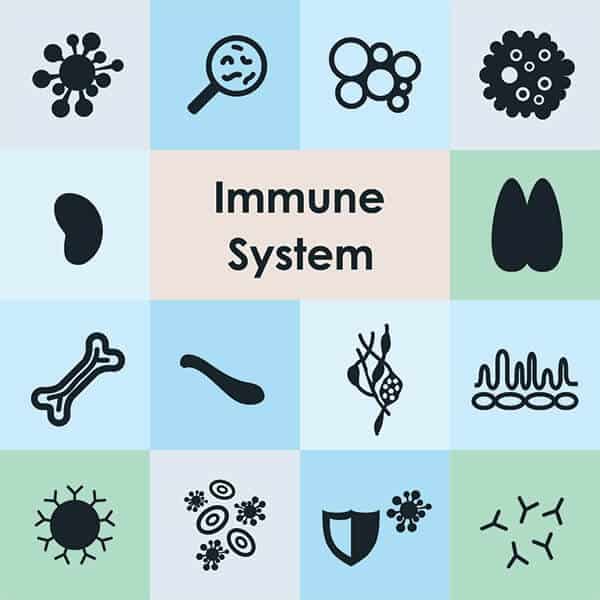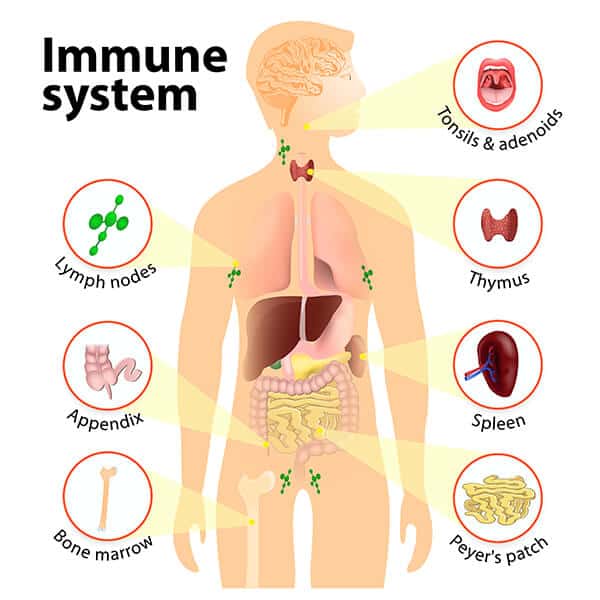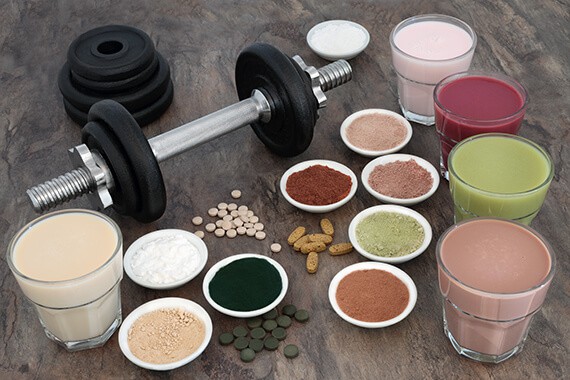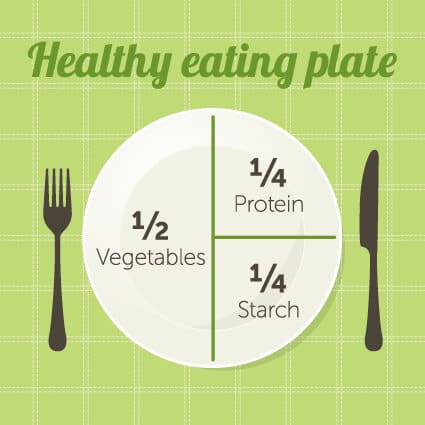
When you have diabetes, you are more prone to getting infections in any part of the body than people without the chronic condition.
Not only are infections more prevalent, but they can become complicated and difficult to treat.
This is due to how diabetes affects our immune system. Let’s talk about how diabetes and the immune system in our bodies interact.
Contents
- How does diabetes affect the immune system?
- Is building immunity when you have diabetes possible?
- Natural ways of boosting my immunity
- Quick tips for helping increase your immunity
- What about physical activity?
- Get enough sleep
- Watch your portions and count your carbohydrates
- Quitting smoking and other habits that may be harming your health
- Manage your stress
- FAQS
- Over to you
How does diabetes affect the immune system?

The immune system of the person with diabetes is damaged or rendered defective. This happens at the cellular level. If high blood sugars are present, such as is the case with uncontrolled diabetes, cells behave accordingly.
There is more chance that microorganisms in the body will become viral, leading to infections. This is due to the decreased immune response. The cells do not join to kill off the invading microorganisms in a high sugar environment.
Once blood sugars are brought into a normal range, immune system responses become more rapid and the body can ward off infections.
In relation to yeast infections and its prevalence in diabetes, yeast cells have an affinity for adhering themselves to diabetic cells. It’s likely that carbohydrates at the receptor level of the cell attract yeast to these “diabetic” versus “non-diabetic” cells.
This is possibly why yeast infections in people with diabetes can be difficult to cure. 1
I recommend reading the following articles:
- Slow Healing & Diabetes: Why Do Wounds Heal Slowly If You Have Diabetes?
- 26 Healthy Snack Ideas by Expert Nutritionists
- The Future of Diabetes Care: Tandem T-Slim X2
- Exercises That Are Good For Weight Loss If You Have Diabetes
- Top 10 Healthiest Low Carb Cereals
- How Can Weight Loss Be An Important Sign Of Diabetes?
Is building immunity when you have diabetes possible?
Type 1 Diabetes, as we know, is by nature an autoimmune disorder, whereby the immune system attacks beta cells in the pancreas and renders them unable to produce insulin, which is needed for all our body’s cellular processes.
Type 2 Diabetes, though we generally don’t think of it as an autoimmune disorder, is the combined process of not enough insulin produced and the body’s resistance to its own insulin which makes it unusable.
This also affects the immune system in several ways. High blood sugars, as discussed above, contribute to infections and other illnesses in the person with diabetes, either Type 1 or Type 2. This is due to a decreased functioning of white blood cells (WBCs) that play an important role in the body’s immune response.
You can, however, increase your immune response when you have diabetes. Since poor immune response is related to high blood sugars, controlling those is the key to keeping an intact immune response when you have diabetes. To figure out how you can counteract viruses, fungi and bacteria in your system, read on…
Natural ways of boosting my immunity
Natural ways to boost your immunity include eating right, getting plenty of rest and exercise and eating certain foods that may boost immunity.
Taking supplements/medications to boost immunity
Speak with your doctor before starting any supplements or medications that are meant to boost your immunity if you have diabetes. Certain options may interact with your medications, so it’s important to consult with your doctor or pharmacist.
Are there foods that help with strengthening the immune system?
What you eat makes a big difference in how your immune system reacts. The foods we eat when we have diabetes are even more important, and we must pay attention to carbohydrate content of foods, portion sizes and watch our fats.
Staying away from processed foods and eating more whole grains is important. Getting enough fiber tends to help blood sugars remain stable.
There are some nutrients that are of importance to boosting your immune system.
They are:
- Vitamin C – helps to break virus chains – found in fruits, vegetables such as broccoli and tomatoes- get from other citrus fruits as well; try kiwi, sweet potatoes, cauliflower, bell peppers in the red variety and butternut squash, adding lemon juice to drinks, for added Vitamin C
- Vitamin E – get these vitamins from whole grain products and nuts in the right portion size due to fat content
- Omega 3 Fatty Acids – found in flaxseed and other seed oils, fatty fish such as mackerel, tuna, salmon and anchovies – has antioxidants to help the immune system to clear toxins such as bioflavonoids found in vegetables and fruits
- Zinc – special immune boosting properties (found in turkey, beans of all types)
- Selenium – found in sunflower seeds, chicken and whole grain rice
- Garlic – antioxidant, cancer fighting
- Curcumin
- Onions – antioxidant, cancer fighting
- Ginger – digestion, anti-inflammation, immune boosting by breaking down toxic waste in organs
- Turmeric
- Yogurt and probiotics – contains probiotics that help in the functioning of the immune system. Pick up active yogurt cultures or a tablet from the pharmacy if you don’t particularly like yogurt. Also helps with digestion.
- Flavonoids – such as found in tea increase the immune system (white, black, green tea). Also found in citrus fruits in high quantities – also soothes the throat and hot tea warms us up which helps with immune responses.
- Mushrooms – high in antioxidants with cancer fighting properties, antiviral, antibacterial – good source of Vitamin B, fiber and minerals selenium and copper. Increases cytokine production to fight infections in the body (try shitake, reishi or maitake varieties)
- Drink plenty of water
- Chicken soup – yes, the old home remedy is great for boosting immunity due to its healthy protein contents and a host of vitamins and minerals and fatty acids to boost immunity – homemade or store-bought will do
- Wash your hands – good handwashing techniques ward off viruses and bacteria that can invade our bodies and cause illness and infection 2
Quick tips for helping increase your immunity
The following are quick tips to help you increase your immune system response if you have diabetes. Follow these tips for a healthier you with less colds, viruses and nasty microbes to fight off in your system.
As you age, your immune system response can become slow. When you have diabetes, this is doubly true.
- Get enough exercise
- Get the right amount of sleep
- Eat the right portions of carbohydrates, proteins, fats
- Stop any bad habits such as smoking and drinking alcohol
- Managing your stress levels can also play a big role
What about physical activity?
It’s always important to get regular exercise when you have diabetes. Making sure that you get up and move more should be your goal. Aiming for about 30 minutes of physical activity about five days per week is a good long-range goal to start with.
Make sure that you plan regular exercises into your calendar. Mark the days you will exercise and see if a friend or family member can come along. Take a walk down by a river or lake, take a mountain hike, or bike along the many bike paths cropping up all over to increase the general populace’s exercise levels.
Once you’ve found some great activities to participate in that you enjoy, it won’t seem so much like work anymore. It also helps to keep you from getting illnesses. It boosts the body’s immune system.
On top of these benefits, you will enjoy a steadier weight. If you are trying to lose weight, increasing your activity to increase your lean muscle mass and burn more calories will help along with reducing portion sizes and carbohydrates. It’s easier to lose weight when you are exercising, also.
After you’ve got your cardio workouts going, add in strength exercises three days per week with a day’s break in between. This will also help to increase the lean muscles and boost your immune system.
You can use canned goods, resistance bands or look up routines on YouTube or online. There are many different exercise programs to choose from.
It may take you awhile to build up to your goal, but your heart and circulatory system, weight, energy level and mood will all elevate when you are getting regular exercise. It’s a win-win.
Your insurance plan may even cover the cost of joining a program or gym. Give them a call or view their website to learn about your benefits. You may be surprised.
Get enough sleep
Sleep is our body’s way of recharging for the next go-round. If we don’t get enough sleep, we suffer. Our immune system doesn’t like it when we don’t get enough sleep to recharge.
In fact, some research has shown a link between lack of sleep and the development of Type 2 Diabetes. It increases our stress responses when we don’t get enough sleep.
Our cortisol and fatty acid levels raise when we miss sleep, so it’s best to get your shut-eye. Missing sleep may also lead in further weight gain which may in turn lead to T2D.
To get a better night’s sleep, make sure to:
- Avoid caffeine before bedtime
- Avoid taking decongestants for colds which may keep you up at night
- Avoid tobacco (you should have quit smoking, anyway)
- Avoid alcohol before bedtime (this one may be surprising, but alcohol can disrupt sleep patterns)
If your partner notices that you have periods of what may be “sleep apnea,” it’s important to get evaluated for any sleep disorders if you have diabetes.
People with diabetes are more likely to experience sleep apnea and related heart conditions. If your sleep patterns change, or you’re concerned about your sleep patterns, see your doctor.
Watch your portions and count your carbohydrates
In addition to getting the right foods and nutrients, to boost your immune response, you should watch your portion sizes and count your carbohydrates when you have diabetes.
A variety of fruits and vegetables in a variety of colors will ensure plenty of fiber, vitamins and minerals. You want to avoid foods that tend to raise your blood sugar and eat those that tend to keep blood sugars steady that are high in fiber.
Gaining weight tends to increase our risk of inflammation in tissues, which is responsible for a decreased immune response as well. Therefore, sticking with the plate method and eating the right sized portions can help to control weight and related inflammation causing a decreased immune response.
Don’t skip your meals and test your blood sugars as often as your doctor tells you to. Snack on healthy, high fiber, whole grain and proteins. If you are trying to lose weight, you can count calories. There are many apps available that can help you count your calories, such as MyFitnessPal.
Measuring your foods may be helpful also when you are counting calories. See a Registered Dietician or Certified Diabetes Educator if you want to count calories and are unsure how to go about it.
Avoid processed foods such as cakes, pies and cookies whenever possible. Plan to drink mainly water and an occasional unsweetened beverage. Getting plenty of fluids can also help immune responses.
Quitting smoking and other habits that may be harming your health
If you haven’t quit smoking or using tobacco products yet, make plans to do so now. You can call the quit line in your state to seek help. They may have nicotine patches, gums or lozenges available for you as stop smoking aids. Visit your doctor to discuss whether you might need Wellbutrin or Chantix to stop smoking.
It's the most important thing that you can do for your health. Tobacco or nicotine containing products tend to bind with all the oxygen in our system. It cuts our circulation, and when we have diabetes, we already have compromised circulation.
Smoking increases the risk of cardiovascular disease, stroke and circulatory problems throughout the body. It also is responsible for certain cancers and respiratory diseases. Smoking has been linked to many chronic diseases and cancers, so quit today.
Alcohol, as said, can affect our quality of sleep, but it can also sabotage our diabetes management. High carbohydrates and sugars in alcoholic beverages tend to raise our blood sugars. Generally, women should aim for one drink if they have one, and men can have up to two alcoholic beverages daily.
People who drink a lot of alcohol have health problems ranging from a greater risk for diseases that are spread (communicable), pneumonia and suppression of immune responses.
Manage your stress
We all have some stress in our lives. Some stress is unavoidable but take care to avoid those stressors that you can in life. Getting adequate sleep helps to recharge once we have a stressful day.
Lots of stress building up over time can have an affect on our immune system. Some of life stressors, such as a long illness, when a loved one passes away, or during life events such as divorce, stress reaches its peak and we may tend to fall ill during such times.
Working out some stress relief measures such as meditation, Yoga, Tai Chi, or seeing a counsellor if you need to talk about things. Programs such as 12 step programs can help when dealing with all sorts of addictions that affect a family and can help the family to cope with these stressors in a more positive light.
In addition, stress hormones such as cortisol, when released into the body, can increase the risk of cardiovascular disease, and can increase weight and thus insulin resistance in body tissues. Avoiding our problems, then doesn’t really solve the issues. Our body will react by releasing these stress hormones, so it is best to deal with our stress and learn healthy coping mechanisms early on.
Hormones, such as adrenaline also play a role in reducing the body’s immune response. These stress related hormones can reduce white blood cell production and increase blood sugars and risk of disease and illness.
Health issues such as cancer, can also emerge when we don’t deal appropriately with stress. Stress can be minimized through exercise, as well.
Regular exercise and stress reduction techniques, such as getting enough rest, attending exercise classes help to lower stress and bring immune defense to the surface. Try deep breathing exercises, pursed-lip breathing exercises and other methods to lower stress and high blood pressure.
Exercising can help minimize stress and manage your weight. Include classes such as gentle flow yoga or which are focused on positions that help lower your stress levels and boost your immunity. 3
The bottom line is that reducing stress reduces immune problems related to slow immune response.
FAQS
How will I know if my immune system is low?
If you tend to get a lot of colds and other illnesses, or if infections such as yeast infections set in and you can’t seem to get relief, it could be that your immune system has slowed to a halt.
Check your blood sugars. Are they high? Should you take measures to bring them down to normal target ranges.
What does your A1C look like? Does it need some work to get it down below 7% as recommended by the American Diabetes Association? If so, then take a refresher course for your diabetes, set new goals and jump start your slowed self-management routines.
When blood sugars are high and A1C is out of whack, you may notice that you get more infections and illnesses, so this is how you would know.
Can strengthening my immune system help reverse my diabetes?
By keeping your blood sugars lower and avoiding high blood sugars, you can strengthen your immune system. In some cases, such as if you have not had diabetes for long or you are managing it with diet and exercise and one pill for your Type 2 Diabetes, you may be able to reverse your condition, and many of my patients have been able to do it.
You can lose a little weight, usually about 5 to 7% of your overall body weight, stay active, eat healthy and you just might be able to reverse your condition. You may be able to go to a Pre-Diabetes state if you have T2D, or to a no diabetes state. Remember that if you accomplish this, it should be without episodes of low blood sugars or it wouldn’t be safe.
If you achieve a Pre-Diabetes or no diabetes A1C level, then you shouldn’t be having low blood sugars to be considered reversed. Remember also that if you go in the other direction and stop exercising, eating right and gain weight back, you can be right back to where you started from.
Can high blood sugar also affect the immune system?
High blood sugars do affect the immune system by causing a decreased immune response. They render the immune system unable to produce the desired response to fight off infection and illness.
What is obesity’s role in a weakened immune system?
Obesity increases inflammation, which in turn increases problems with immune system response. Therefore, those who are overweight may have more diabetes and weakened immune systems. 4
Further reading:
- 13 Amazing Management Tips for Adults Living with Type 2 Diabetes
- Never Lose Hope in the Face of Defeat
- Blurred Vision – An Important Sign of Diabetes
- Why Diabetes Can Cause Dirty Neck Syndrome?
- Why You Should Be Concerned With Pain And Numbness When You Have Diabetes
- A New Approach to Lowering Blood Glucose Levels
Over to you
How do you feel about this article on diabetes and the immune system? Have you learned some ways to increase your immune response with diabetes? Let us know your thoughts in the comments box below. Remember your immune system being strong can help you with many other diseases and not only diabetes!
TheDiabetesCouncil Article | Reviewed by Dr. Christine Traxler MD on June 01, 2020
References:
- https://www.ncbi.nlm.nih.gov/pubmed/10575137
- https://www.healthline.com/health-news/diabetes-foods-to-boost-the-immune-system-020114
- https://www.adwdiabetes.com/articles/boost-immunity-diabetes
- http://www.diabeticconnect.com/diabetes-slideshows/344-5-ways-to-strengthen-your-immune-system-for-diabetes-control














